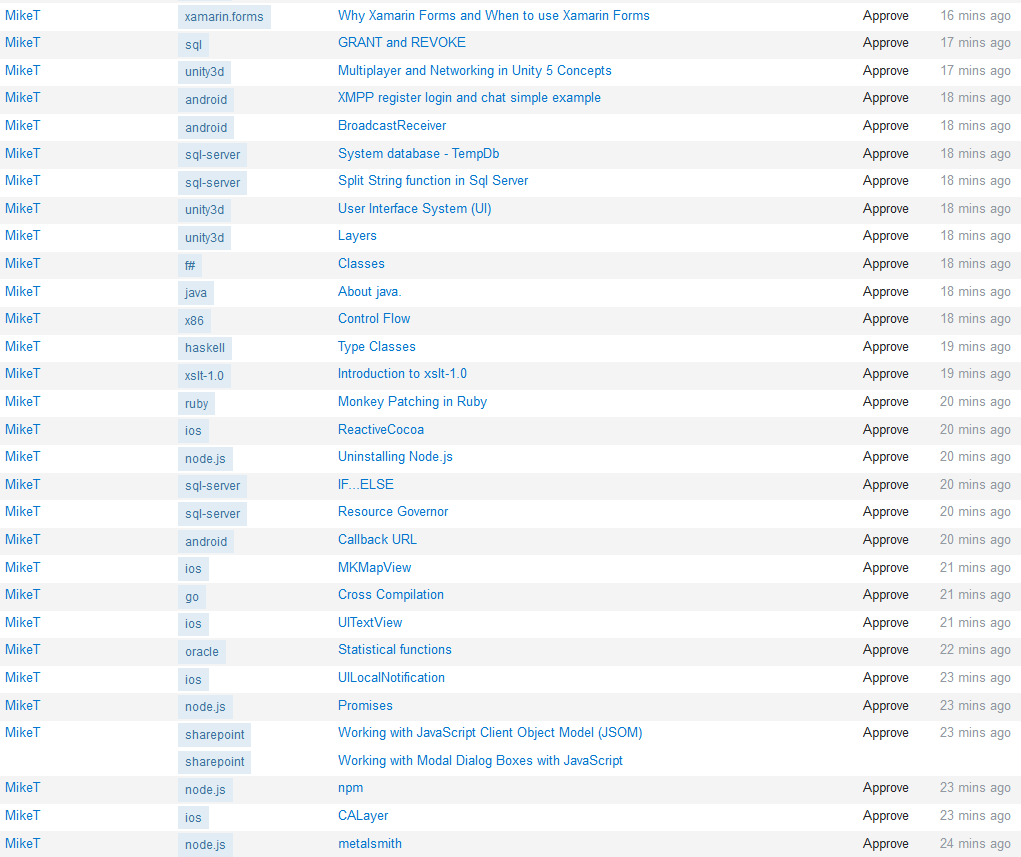Agreed. Tag score and tag badges are supposed to be indicative of a user's knowledge in that category, so review power should be weighted based on them, with new privileges unlocked at higher levels.
In this regard, I would like to suggest that each person has their review power for a given documentation category determined based on a combination of their tag badges and tag score for that category, weighted towards tag badges.
- If your tag score is halfway towards the next tag badge, then you get 1 point. [If you have a gold tag badge, this point is instead awarded based on a theoretical "platinum" badge, which has requirements equal to 10x the requirements for a silver badge (paralleling how a gold badge's requirements are 10x a bronze badge's requirement).] [I'm unsure whether this should take the number of answers posted by the user into account as well; if so, it most likely needs tweaking.]
- No tag badges: This point is awarded for having a tag score of 50+.
- Bronze tag badge: This point is awarded for having a tag score of 200+.
- Silver tag badge: This point is awarded for having a tag score of 500+.
- Gold tag badge: This point is awarded for having a tag score of 2000+.
- Each tag badge is worth 2 points, cumulatively.
- Bronze badge: 2 points.
- Silver badge: 4 points.
- Gold badge: 6 points.
Following this system, each user would have a review power in the range of 0..7, representing their knowledge of the category in question. Furthermore, to parallel gold badges allowing a user to single-handedly close questions, an edit would require a total review score of +7 to approve and -7 to reject.
In addition to being used to determine if an edit should be approved, review power in a category would also grant a user privileges for that category. The ones that come to mind are:
- 0: No privileges, cannot vote on edits.
- 1: Can vote on edits; able to cast 10? votes per day.
- 4: Voting limit removed.
- 7: Can single-handedly approve or reject edits.
Examples:
- I would have a review power of 1 in
c++ documentation (tag score 64 [+1], as of this post), and 0 in other documentation categories (second-highest language tag score is 9, for c).
- The question's OP, Machavity, would have a review power of 6 in
php documentation (gold badge [+2 x 3], tag score <2000), and 3 in mysql (bronze badge [+2], tag score 250 [+1]), going by their top tags.
I'm not sure if this is a good idea or not, but it makes sense to me. Each user's ability to review should be based on the knowledge they have demonstrated in that category, as should the value placed on their reviews.
